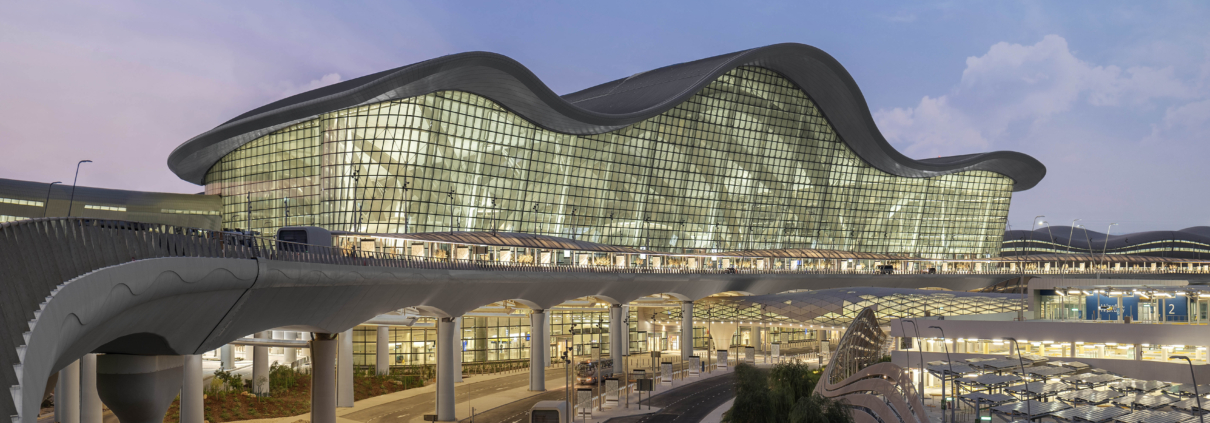ABU DHABI SET TO BECOME WORLD’S FIRST DOCUMENT FREE AIRPORT
By 2025, Abu Dhabi’s Zayed International Airport may allow travellers to pass through entirely document-free.
Known for its advanced technology, Zayed Airport has now launched the Smart Travel Project, which plans to install biometric sensors at every identification point in the airport—from check-in counters and immigration booths to duty-free tills, lounges, and boarding gates. Using facial and iris recognition, these sensors will verify travellers’ identities, making traditional ID, passport, and ticket checks unnecessary.
Biometrics, or biological measurements unique to each individual, provide a seamless way to confirm travel status. Currently, this technology is available on some Etihad flights, but Zayed Airport aims to implement it across nine touchpoints—a global first, according to Andrew Murphy, Abu Dhabi Airport’s Chief Information Officer.
Unlike systems that require pre-enrolment, Abu Dhabi’s biometrics will operate automatically. Passengers visiting the UAE, whether residents or tourists, will have their biometrics recorded on arrival by the Federal Authority for Identity, Citizenship, Customs & Port Security (ICP). The airport’s technology then integrates this data to verify passengers at each checkpoint without additional steps.
Murphy emphasises the convenience and speed this offers, with initial tests indicating transit times of under 15 minutes from the curb to boarding or retail areas. This efficiency is remarkable given the airport’s capacity to process 45 million passengers annually.
For those preferring a more traditional process, such as infrequent travellers or those with young children, a standard document verification option will remain available. The choice aligns with international standards, acknowledging that some passengers may find facial recognition unfamiliar or prefer a human interaction. Children under 12, whose facial features change rapidly, will still require manual verification.
The drive for biometric integration is not unique to Abu Dhabi. Many global airports are increasingly adopting biometric technology, but no airport has fully implemented a passport-free process. Singapore’s Changi Airport, for instance, is introducing similar measures this year. Other hubs, including Hong Kong, Tokyo, and Delhi, have also installed biometric systems for streamlined travel.
European airports are also progressing; a trial by British Airways last year enabled a fully digital international flight from Heathrow to Rome. In the US, Customs and Border Protection has implemented biometrics across all international arrivals, with select airports using it for departures as well.
Despite the international interest in biometric travel, widespread adoption hinges on standardisation. IATA’s head of customer experience, Louise Cole, explains that passengers will benefit most if biometric processes are consistent across airports. Streamlining biometric technology worldwide would enhance the travel experience, ensuring privacy and data protection.
Abu Dhabi’s document-free system could set the standard, showing the potential for a seamless, paperless airport journey across the globe.



